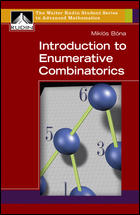Bernard Malgrange
Systemes differentiels involutifs
Panoramas et Syntheses 19 (2005), vi+106 pages
Resume :
La premiere partie est une exposition de la theorie des ≪
systemes en involution ≫ d'E. Cartan, du point de vue
homologique de Spencer, Sternberg et al. Le point de vue de
Cartan lui-meme est aussi rappele, et compare au precedent, a
l'appendice B. La seconde partie demontre l'involutivite
generique des systemes differentiels analytiques, ce qui est une
version precise d'une assertion de Cartan suivant laquelle,
grosso modo, ≪ en prolongeant un systeme differentiel, on finit
par obtenir un systeme en involution ≫ .
Mots clefs : Complexe de Koszul, involutivite, ideal
differentiel, D-variete
Abstract:
Involutive differential systems
The first part is an exposition of the theory of ``systemes en
involution'' of E. Cartan, from the homological point of view of
Spencer, Sternberg et al. The point of view of Cartan himself is
also recalled, and compared to the preceding one, in Appendix B.
The second part proves the generic involutiveness of analytic
differential systems, which is a precise version of an assertion
of Cartan saying roughly that, ``by prolongation, a differential
system becomes eventually involutive''.
Key words: Koszul complex, involutivness, differential ideal, D-variety
ISBN : 2-85629-178-3
by Ciaran Mac an Bhaird.
Primality testing and Gaussian Sums
ISBN: 0-9544269-3-2
Publication date: 31 March, 2005.
Paperback. iv + 120 pp. 295x210mm.
 This monograph is an introduction to the background mathematics involved
in determining whether a given number is prime or composite. The first
few chapters deal with basic probabilistic primality tests using modular
arithmetic. The author then develops the theory of quadratic and cubic
residue symbols and the associated recoprocity laws. These topics are investigated
thoroughly using Gauss and Jacobi sums, as well as Eisenstein integers
and multiplicative characters. The final chapter gives a brief description
of the deterministic APR (Adleman, Pommerance and Rumely) primality test.
This monograph is an introduction to the background mathematics involved
in determining whether a given number is prime or composite. The first
few chapters deal with basic probabilistic primality tests using modular
arithmetic. The author then develops the theory of quadratic and cubic
residue symbols and the associated recoprocity laws. These topics are investigated
thoroughly using Gauss and Jacobi sums, as well as Eisenstein integers
and multiplicative characters. The final chapter gives a brief description
of the deterministic APR (Adleman, Pommerance and Rumely) primality test.
The book, based on the author's Masters thesis, is suitable for
advanced undergraduate or postgraduate student use. It should be
useful to students with an interest in number theory, Gauss sums,
or primality testing in general.
by Christoph List.
Linearization of Holomorphic Dynamical Systems
 ISBN: 0-9544269-2-4
ISBN: 0-9544269-2-4
Publication date: due 28 February, 2005.
Paperback. approx 145 pp. 295x210mm.
A holomorphic dynamical system consists of the iteration of a
holomorphic function f(z). Consider only functions that fix the
origin. The system is said to be linearizable if there is an
invertible holomorphic function psi(z), fixing 0, such that psi^{-1}\circ
f\circ\psi takes the form \lambda z, for some constant \lambda.
The problem of characterizing the linearizable functions was
raised over a century ago, but waited until the 1990's for
serious progress. This book, based on the author's Master's
thesis, tells the story to 1998, including an exposition of work
of Yoccoz and Perez-Marco.
Bona, Miklos
Introduction to Enumerative Combinatorics
ISBN: 007312561X
Format: BB 544 pages
Pub Date: 2005-09-27
Copyright: 2006
 Description
Description
Written by one of the leading authors and researchers in the
field, this comprehensive modern text is written for one- or two-semester
undergraduate courses in General Combinatorics or Enumerative
Combinatorics taken by math and computer science majors.
Introduction to Enumerative Combinatorics features a strongly-developed
focus on enumeration, a vitally important area in introductory
combinatorics crucial for further study in the field. Miklos Bona’s
text is one of the very first enumerative combinatorics books
written specifically for the needs of an undergraduate audience,
with a lively and engaging style that is ideal for presenting the
material to sophomores or juniors.
This text is part of the Walter Rudin Student Series in Advanced
Mathematics.
Table of contents
Daniel Huybrechts
Fourier-Mukai Transforms in Algebraic Geometry
 (Hardback)
(Hardback)
0-19-929686-3
Publication date: 24 May 2006
Clarendon Press 280 pages, 114 b/w line drawings, 234mm x 156mm
Series: Oxford Mathematical Monographs
Description
A seminal text in this important area of algebraic geometry
Excellent exposition by a top researcher
Contains graded exercises and numerous examples
This seminal text on Fourier-Mukai Transforms in Algebraic
Geometry by a leading researcher and expositor is based on a
course given at the Institut de Mathematiques de Jussieu in 2004
and 2005. Aimed at postgraduate students with a basic knowledge
of algebraic geometry, the key aspect of this book is the derived
category of coherent sheaves on a smooth projective variety.
Including notions from other areas, e.g. singular cohomology,
Hodge theory, abelian varieties, K3 surfaces; full proofs are
given and exercises aid the reader throughout.
Readership: Graduate and research mathematicians
Contents
Preface
1 Triangulated categories
2 Derived categories: a quick tour
3 Derived categories of coherent sheaves
4 Derived category and canonical bundle I
5 Fourier-Mukai transforms
6 Derived category and canonical bundle II
7 Equivalence criteria for Fourier-Mukai transforms
8 Spherical and exceptional objects
9 Abelian varieties
10 K3 surfaces
11 Flips and flops
12 Derived categories of surfaces
13 Where to go from here
References
Index
Mark Ronan
Symmetry and the Monster
One of the greatest quests of mathematics
0-19-280722-6
Publication date: 25 May 2006
224 pages, 15 b&w, 196mm x 129mm
Description
The exciting story of one of the great mathematical quests,
combining mathematics with stories of the extraordinary
characters involved.
Very accessible writing - dazzling concepts such as multi-dimensional
snowflakes are explained for the general reader.
An exciting, pacy, historical narrative covering two centuries -
from the young genius Everiste Galois to the present day.
Mathematics is being driven forward by the quest to solve a small
number of major problems - generating excitement in the
mathematical world and beyond. Four famous challenges have been
Fermat's Last Theorem, the Reimann Hypothesis, Poincare's
Conjecture, and, now, the quest for the 'Monster' of Symmetry. It
is this latter that forms the topic of this book.
Although its roots go back much further, the quest to understand
symmetry really begins with the tragic young genius Evariste
Galois, who died at the age of 20 in a duel. He used symmetry to
understand algebraic equations, and he discovered that there were
building blocks or 'atoms of symmetry'. Most fit into a table,
rather like the periodic table of elements, but there are 26
exceptions. The biggest of these was dubbed 'the Monster' - a
giant snowflake in 196,884 dimensions.
At first the Monster was only dimly seen. Did it really exist, or
was it a mirage? Many mathematicians became involved. The Monster
became clearer, and it was no longer monstrous but a beautiful
form that pointed out deep connections between symmetry, string
theory, and the very fabric and form of the universe.
The story of the discovery involves some extraordinary
characters, and Mark Ronan brings these people to life, and
recreates in accessible language the growing excitement of what
became the biggest joint project ever in the field of mathematics
- the hunt for the Monster.
Readership: This book will appeal to readers of popular science
and popular mathematics, both non-specialists and also
specialists attracted by the biographical details and narrative
of the quest for 'the Monster'
 This monograph is an introduction to the background mathematics involved
in determining whether a given number is prime or composite. The first
few chapters deal with basic probabilistic primality tests using modular
arithmetic. The author then develops the theory of quadratic and cubic
residue symbols and the associated recoprocity laws. These topics are investigated
thoroughly using Gauss and Jacobi sums, as well as Eisenstein integers
and multiplicative characters. The final chapter gives a brief description
of the deterministic APR (Adleman, Pommerance and Rumely) primality test.
This monograph is an introduction to the background mathematics involved
in determining whether a given number is prime or composite. The first
few chapters deal with basic probabilistic primality tests using modular
arithmetic. The author then develops the theory of quadratic and cubic
residue symbols and the associated recoprocity laws. These topics are investigated
thoroughly using Gauss and Jacobi sums, as well as Eisenstein integers
and multiplicative characters. The final chapter gives a brief description
of the deterministic APR (Adleman, Pommerance and Rumely) primality test.
 ISBN: 0-9544269-2-4
ISBN: 0-9544269-2-4  Description
Description  (Hardback)
(Hardback)